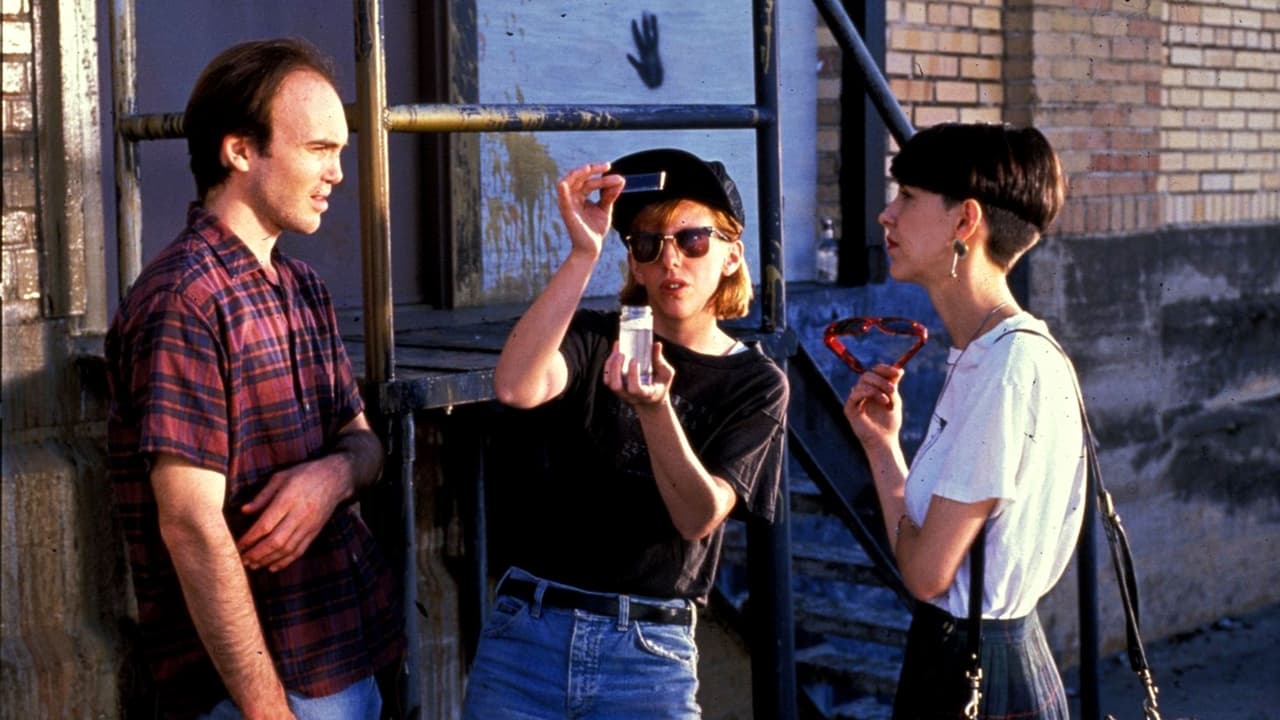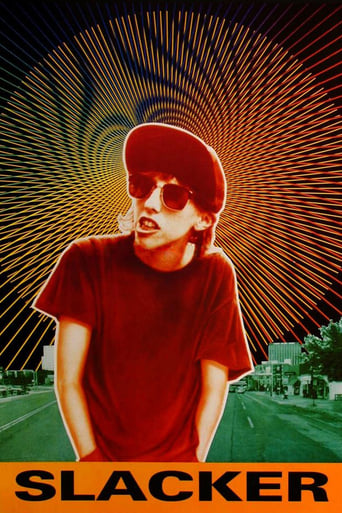

Waste of time
... View MoreOverrated
... View Morei know i wasted 90 mins of my life.
... View MoreOne of the film's great tricks is that, for a time, you think it will go down a rabbit hole of unrealistic glorification.
... View MoreA film that is plot less and based on pure conversations that are incoherent and yet so interesting. This is remarkable filming.This film is an evocative reflection of an American Community based in Texas and it reflects it so aptly and in sync with the title Slacker. "Slacker" refers to a person who lacks work ethic or who avoids work. Most of the characters, just speak and there work is never shown. What they do, why they do that. All this is not mentioned for most characters. They just speak something. For most of the time, there dialogs actually mean nothing and may even some gibberish, unless you pay attention to the subtexts. Indeed, they have a profound meaning underground and they are interesting too. Just have the patience of paying attention and you will be rewarded.Richard Linklater made remarkable films. From the "Before" trilogy to his most provocative and philosophical "Waking Life". I suppose so, that "Slacker" is indeed a prequel to "Waking Life" where conversations mean everything, characters are just real characters, who speak their mind, and there is no coherence to relate the whole film to a story. So those are the similarities of these two films and yet there are many differences too, which I better not discuss here. Linklater's eye for detail and understanding nuances of a whole community and capturing them as if they are all impromptu is indeed wonderful. This sets the film apart and the structure is rather stunning and yet so simple, indeed, the structure is just a flow of characters. One character leaves and other picks it up and sometimes the new character was part of the previous frame or scene too. So the structure could have been new in 1991 for many, but such structure came in 1929 with "Man with a Movie Camera". Now, what's outstanding though is the dialog. Linklater has a gift for provoking thoughts with his dialogs and this perhaps is his earliest instance where he showcased in talent in full flow. This was made on a shoe-string budget of $23000 (courtesy : Wikipedia). Considering that, this is made wonderfully. Also, this film was shot on a span of few days only in Austin, Texas. So, this is a wonderful attempt in Independent films and it has raised the bar for writing and dialog. The production values are not great but manageable. The editing is superb and the cinematography fine. Other aspects of acting are just apt. So all in all technically it was a great attempt with the budget it had.I liked this film but this cannot be visited multiple times as the dialogs are interesting but are limiting with the characters. Thus, I am going with a 3/5 for a good film.
... View MoreObviously for those wondering about this film, you pretty much get the gist of what it's about. It's definitely experimental, even moreso than what I thought. Because of the poster you assume there's still a lead protagonist, but nope. It really only follows these people and what they believe in, their everyday activities, their life and their culture. A lot of this is really funny, and much of it also sort of hard to get into simply because of the format. I recommend this, but with reservations. I don't think it's one of Linklater's best films, but one of his mot admirable and probably one of his most influential as well, if not the most.
... View MoreSlacker is constructed of a series of loosely connected conversations, and monologues that play out in an extremely natural flow of discussion. There is no typical plot structure, but despite this it manages to tell a story. It encompasses mostly fringe characters with inane, insane, and interesting perspectives on many varying things. Many of the conversations are easy to imagine taking place in real situations regardless of their peculiarity it's a sort of real world peculiarity that many of us have experienced, and plenty of people that I've met match these characters depicted. The way in which most of these people are portrayed also allows for a sense of understanding regardless of their ridiculousness, they convey something incredibly human. It's a movie that makes you realize that there's constantly many stories unfolding all around us, intertwined together. Slacker is among few movies that are able to stand strongly upon dialogue that builds no central plot, but manages to entertain you alone.
... View MoreThis film about Texas misfits gets off to a somewhat amusing start as Linklater, the writer-director himself, takes a cab ride and rambles off for several minutes about alternate universes and the roads not taken to the disinterested cab driver. When he reaches his destination, however, the focus shifts to another character that Linkletter passes on the street. Then it's on to another unrelated vignette and another and so on. It seems that each segment is less interesting than the one that preceded it. About half way through, the concept runs out of steam and film really begins to drag. It's an interesting concept that would have worked better if Linklater's script were actually funny. Alas, the laughs are few and far between.
... View More